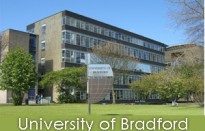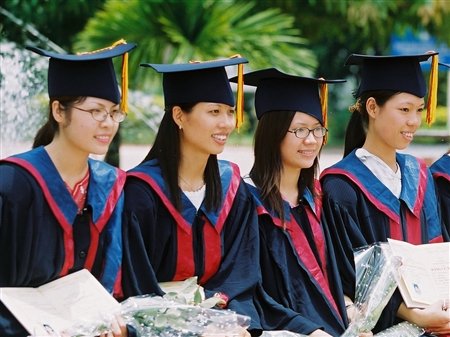Vietnam’s higher education lacks international connection
VietNamNet Bridge – University lecturers have recently voiced their concern that Vietnam’s education has been “staying alone” and it does not have the international connection.
Speaking at a recent workshop on education renovation, Dr Nguyen The Hung from the Hanoi Agriculture University, said that Vietnam’s education and training do not resemble to any other education in the world.
“When Vietnamese lecturers show the education curriculums to foreign colleagues, the foreigners say they cannot understand,” Hung said. “The curriculums have been compiled by ourselves and we believe that they are the best. In fact, we do not have connection to the international education.”
He went on to say that a student, who finishes the agronomy faculty of the university, can only work in Vietnam, Laos, Cambodia or Mozambique, while he cannot work in Thailand or the Philippines.
“Vietnam’s education has low international connection,” he said.
While Vietnam produces high numbers of students every year, it does not have many high qualification students. Commenting about the Vietnamese education system, Hung said that the grade “good” can be given to primary and secondary schools, while problems arise in high schools, and big problems can be seen in higher education.
Recently, the credit-based education program has been applied at Vietnamese universities. However, according to Nguyen Thi Ngoc Thuy, MA, from the Hanoi Agriculture University, this is just a “formality”. In fact, old subjects still have been taught to students, while schools dare not give up old curriculums and replace with new ones.
Another big problem of the credit-based education program, according to Thuy, is that the schools now do not recognize the students’ learning records of other schools. “It is because schools do not believe in the training quality of other schools,” she said.
Meanwhile, university lecturers complain that they do not have the opportunities to create and design reasonable curriculums.
Hung said that he presided over the compilation committee for several subjects, but he and other colleagues do not have “room for creativeness” because they were told what to do.
Besides, the low pay has also been cited to explain the low quality of training curriculums. “As lecturers can only get modest pay from the state budget, they have to take extra jobs to earn extra money. This leads to the fact that lecturers do not concentrate on teaching, and this will lead to bad consequences of the national education.
According to Nguyen Ba Mui from the Agriculture University, lecturers can get 30,000-35,000 dong per hour for every extra hour. “Meanwhile, as far as I know, the school has to pay 100,000 dong to cleaners for their three hour work. It seems that our grey-matter is too cheap,” he said.
Vietnam urged to learn from foreign teaching models
Hung thinks that it would better for Vietnam to consider thoroughly and choose a foreign modern education model to follow. “It would be better not to renovate in accordance with the Vietnamese style,” he said.
Meanwhile, Hoang Minh Son, Head of the Training Division of the Hanoi University of Technology, complained that it is very difficult to translate the names of the degrees in Vietnamese education system into English, which is really a big hindrance for Vietnam to integrate to the world.
Son has suggested to renovate the education model and to follow either the UK-US models, or European model which would serve as the foundation for schools to build up the national credit system.
Deputy Minister of Education and Training Bui Van Ga also said that in order to renovate the education, it is necessary to renovate the curriculums. He said that in the draft law of the higher education, framework curriculums will not exist any more, while schools will have to build up their curriculums.
Source: Tien phong



































